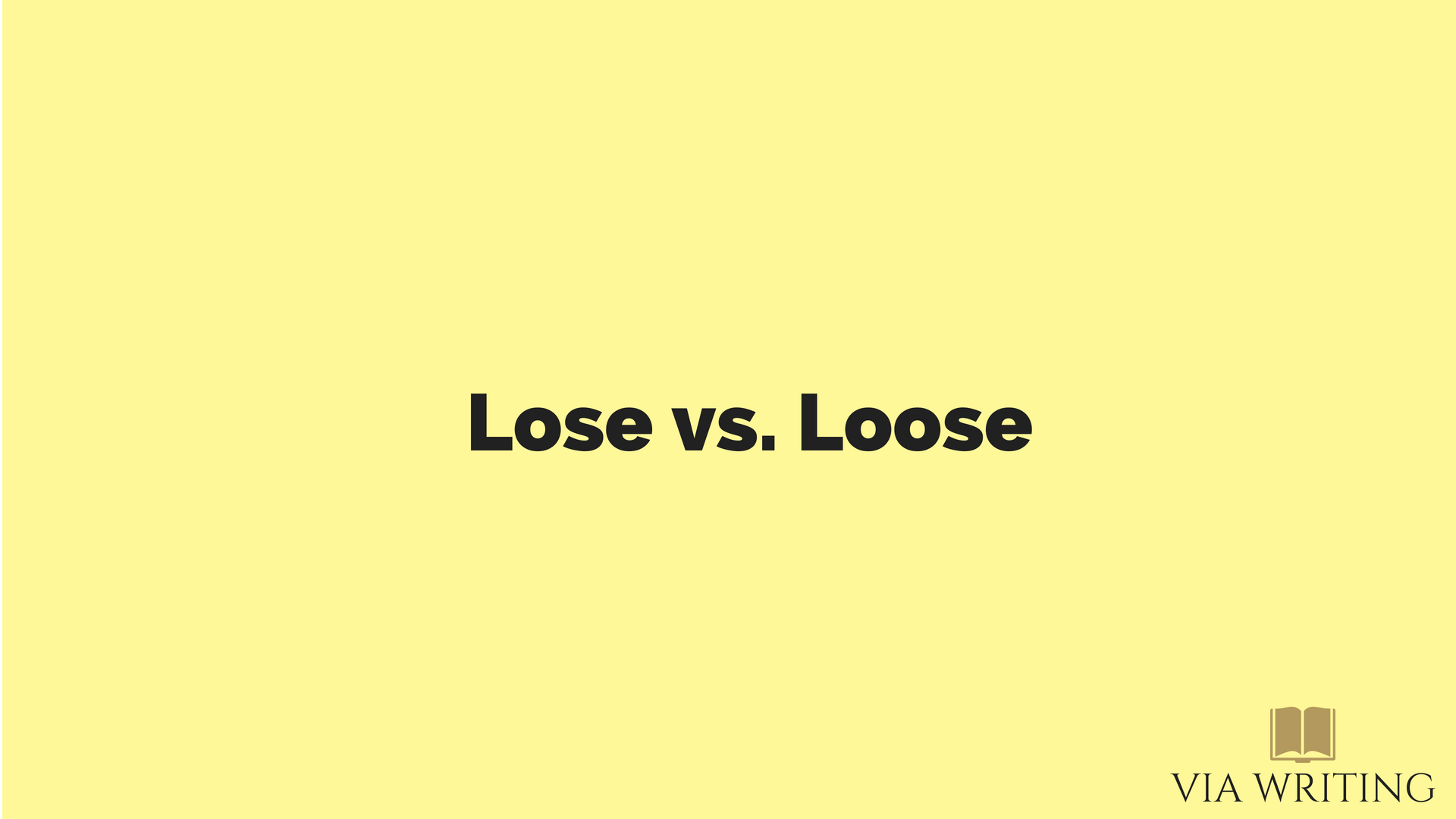“Lose” and “loose” are two words that you’ll see used interchangeably these days, especially on social media. However, they have completely different meanings, and using the wrong word can make a sentence incomprehensible. Here’s the difference between them, and how you should use them in your writing.
Let’s start with “lose”. “Lose” is a verb, that means to misplace or free yourself from something or someone. It can also mean to fail to win something, or to be unable to locate something or someone. Check out these examples:
“I don’t want to lose my wallet, I’ll keep it safe.”
“He’s on track to lose this race if he doesn’t pick up the pace.”
“She’ll lose him if she’s not careful.”
Then there’s “loose”, which has a totally different meaning. In short, “loose” is an adjective that means that something isn’t tight. It can also mean something that isn’t held tightly. Here are a couple of examples to illustrate this:
“His shoes are too loose, they’ll fall off.”
“He tied the dog up loosely, so he could still move around.”
The problem with “lose” and “loose” is that there’s only one letter’s difference between them. If you run a spell check on your work, it’s not going to pick up if you’ve used the wrong word in your writing. This is also true of modern auto correct features, which may sub in the wrong version without the writer realizing. This is why it’s so important not to rely on automatic spell checks too much.




